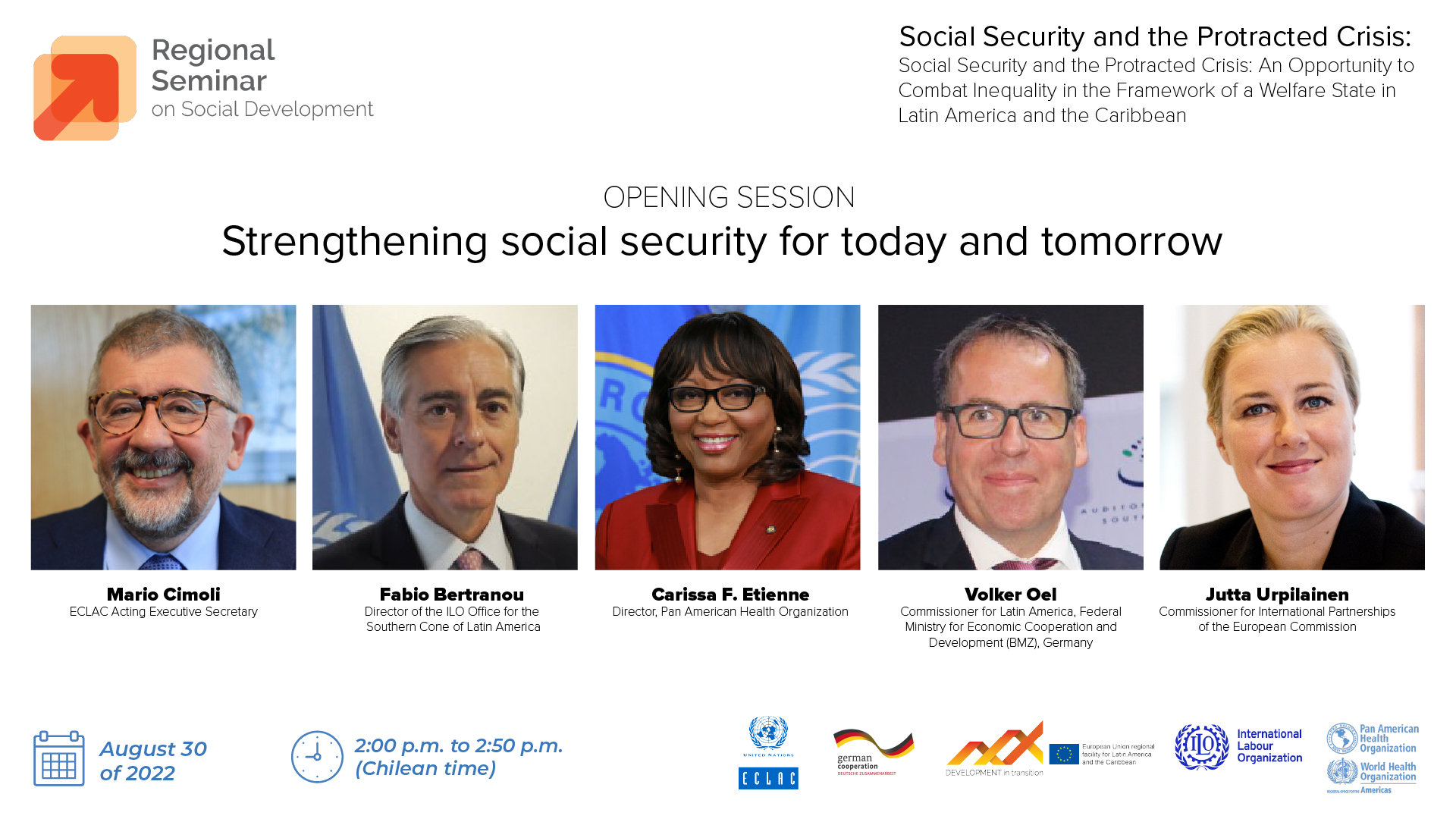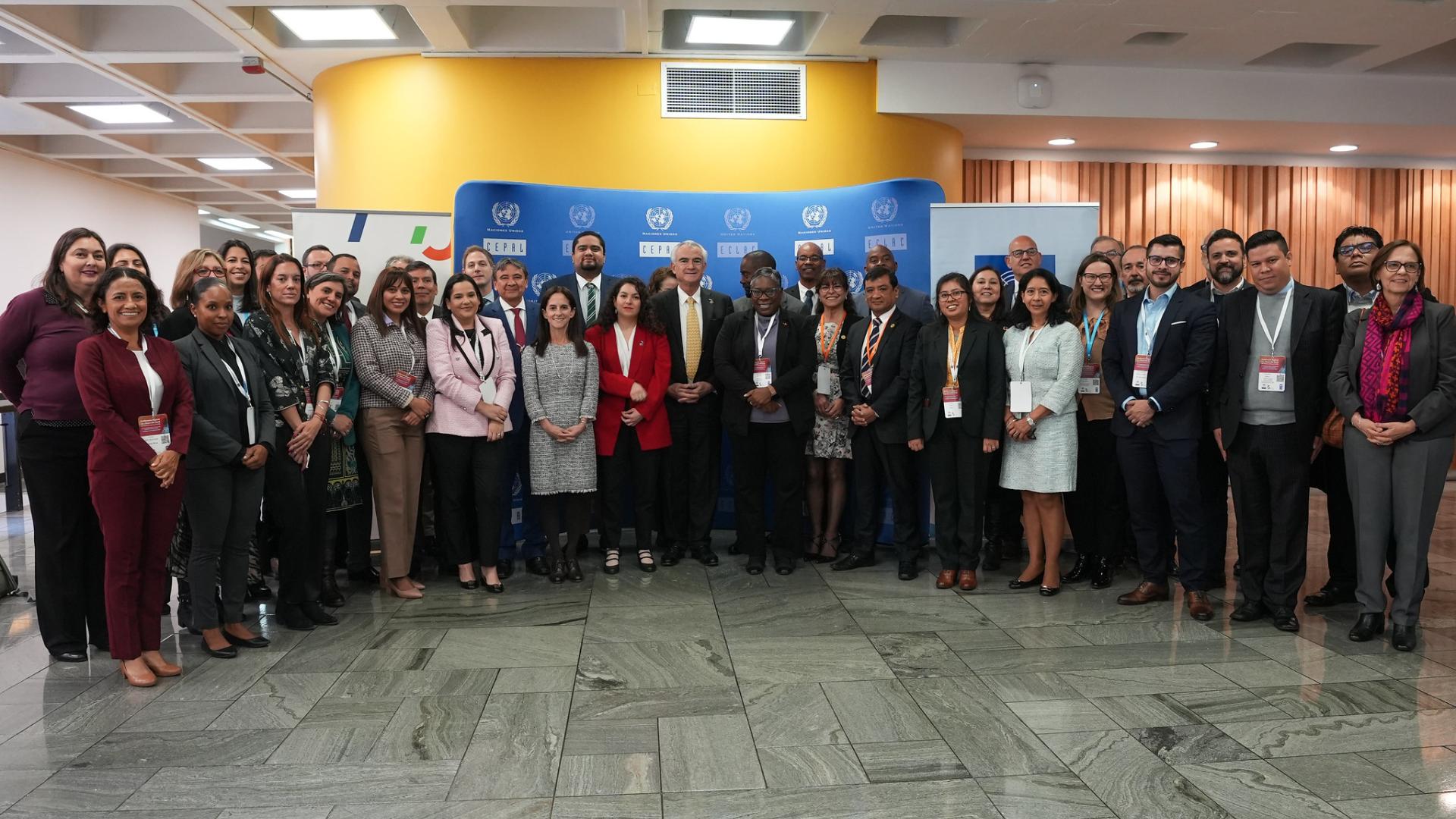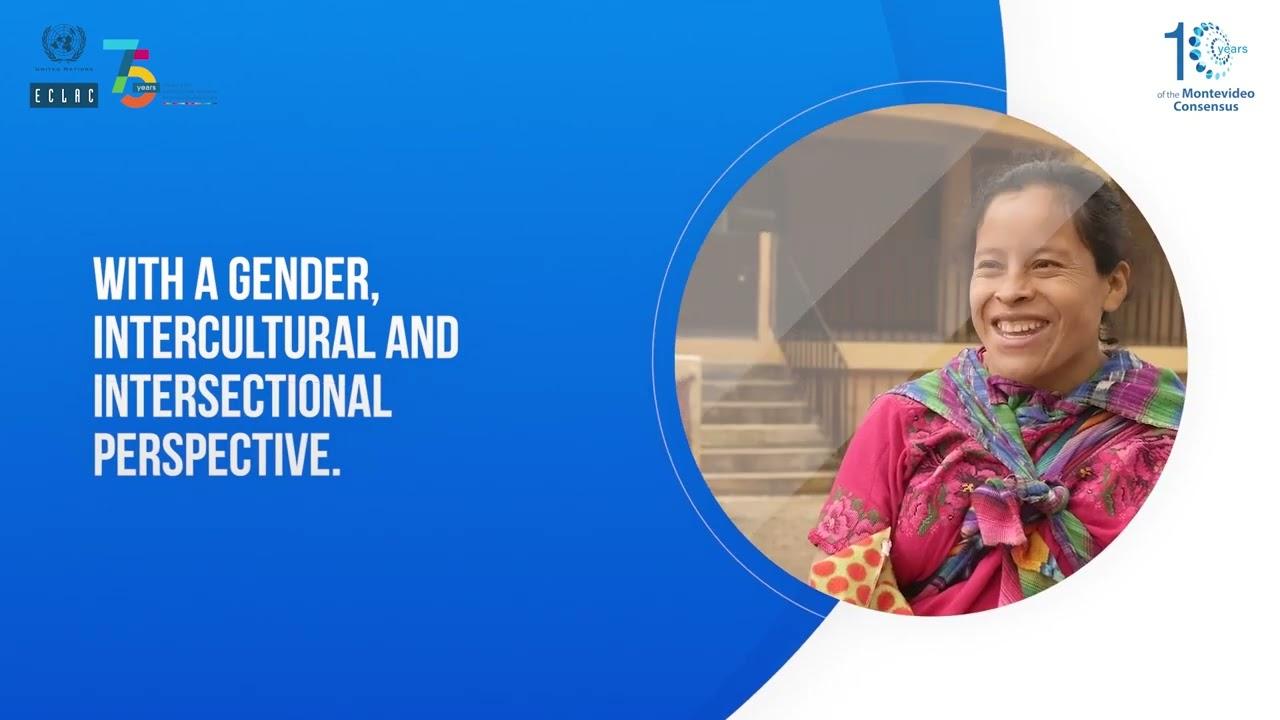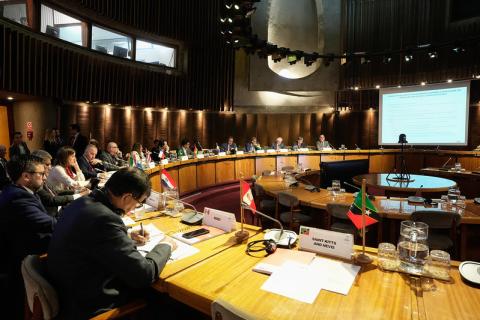Briefing note
Addressing the challenges of social security systems through new social and fiscal compacts in the countries of Latin America and the Caribbean is more urgent than ever in the unfavorable and highly uncertain economic context that the region is currently living through, according to the representatives who participated in the opening session of the Second Regional Seminar on Social Development, which is taking place virtually through Thursday.
The event, entitled “Social Security and the Protracted Crisis: An Opportunity to Combat Inequality in the Framework of a Welfare State in Latin America and the Caribbean,” is organized by the Economic Commission for Latin America and the Caribbean (ECLAC) in the framework of collaboration with the International Labour Organization (ILO) and the Pan American Health Organization (PAHO) and joint work with German Cooperation and the European Union's Facility for Development in Transition.
Its opening session featured remarks by Mario Cimoli, Acting Executive Secretary of ECLAC; Fabio Bertranou, Director of the ILO Office for the Southern Cone of Latin America; Carissa F. Etienne, Director of the Pan American Health Organization (PAHO); Volker Oel, Commissioner for Latin America of the Federal Ministry for Economic Cooperation and Development (BMZ) of Germany; and Jutta Urpilainen, Commissioner for International Partnerships of the European Commission. Alberto Arenas de Mesa, Director of ECLAC’s Social Development Division, served as the moderator.
“The current economic context is very difficult, with setbacks on social matters in the region’s countries. We are concerned about the indicators of poverty, inequality and the population’s well-being. This event precisely seeks to maintain a dialogue with governments, foster cooperation and make a call to act now through new social and fiscal compacts,” Mario Cimoli said.
Amid an accumulation of crises, ECLAC estimates that in 2022 Latin America and the Caribbean will resume a path of low economic growth, compounded by strong inflationary pressures, little dynamism in job creation, declining investment and growing social demands given the rise in poverty and inequality.
The Commission contends that social security and social protection are essential for a big push towards sustainable development in Latin America and the Caribbean. These systems can reduce current uncertainty and the region’s structural weaknesses, since they provide political, economic and social stability.
In this context, ECLAC has urged the region’s countries to move towards universal, comprehensive, sustainable and resilient social protection systems in the framework of a welfare state. To that end, a new social-fiscal compact is needed that would contribute to inclusive and transformative social development with gender equality and would ensure the financial sustainability of policies for tackling inequality, the United Nations regional organization states.
Fabio Bertranou, of the ILO, praised this space for dialogue and reflection and agreed that “effective and comprehensive social protection is not only essential for social justice and decent work, but also for creating a sustainable and resilient future.” Quoting the ILO’s Director-General, Guy Ryder, Bertranou noted that “this is a pivotal moment to harness the pandemic response to build a new generation of rights-based social protection systems.”
Carissa F. Etienne, Director of PAHO, recalled that the Americas is the region in the world with the greatest number of cases and deaths due to the pandemic, and she underscored that the path towards recovery will be complex. The threat of COVID-19 still remains, which means we must remain vigilant, she said. “The effective integration of action between health, financing and social development sectors to construct universal social protection mechanisms constitutes a priority for this region,” she emphasized. The time for action has come, she pointed out.
Meanwhile, Volker Oel, Commissioner for Latin America at Germany’s BMZ, stressed the role of social protection systems and the importance of exchanging experiences and regional and international cooperation to avert setbacks on social development in the region and to move forward on attaining the 2030 Agenda’s Sustainable Development Goals (SDGs). “Social protection can ultimately be understood as a key element of good governance, especially in times of crisis,” he affirmed.
Finally, Jutta Urpilainen, the European Commission’s Commissioner for International Partnerships, indicated that the COVID-19 pandemic has highlighted the need to have stronger health and social security systems globally, including in Latin America and the Caribbean. “We need to collaborate on social policies. We need to build new social pacts. That is our best way to fight against poverty, counter inequalities and foster more democratic and inclusive societies,” she sustained.
Following the opening session, the event’s first panel included remarks by Dean Jonas M.P., Minister of Social Transformation, Human Resource Development and the Blue Economy of Antigua and Barbuda; María Begoña Yarza, Minister of Health of Chile; José Carlos Cardona, Minister of the Social Development Secretariat of Honduras; María del Rocío García Pérez, Undersecretary of Welfare of Mexico; and Sonia Tarragona, Head of the Cabinet of Advisors Unit at Argentina’s Ministry of Health.
The three-day seminar seeks to serve as a space for dialogue and reflection on social security systems in the region, focusing on diagnoses, challenges and strategic orientations for reform and restructuring in pension and health systems. It will include keynote presentations by Nicholas Barr, Professor at the London School of Economics; Carmelo Mesa-Lago, Professor Emeritus at the University of Pittsburgh; and Sir Michael Marmot, Professor of Epidemiology at University College London (UCL) and Director of the UCL Institute of Health Equity, among other specialists.



